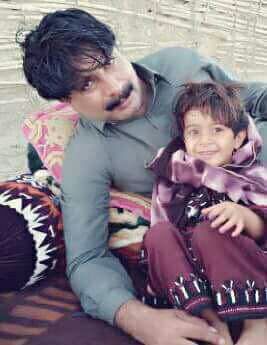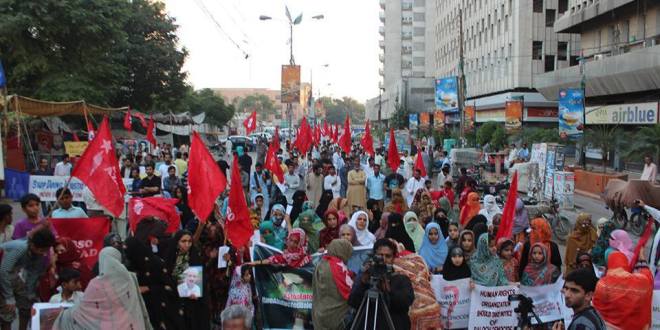As the Baloch across the world are crying foul over the ‘abduction’ of their women and children by security forces, it is consoling to reminisce about the not-so-distant past when our women and children enjoyed a happier life with some significant powers.
Baloch women realized their power and freedom in 2005. It was the year when some Baloch men, who had previously angered the mighty Pakistani security forces because of their nationalistic politics, started to go missing — initially in dozens and then in hundreds.
Their sons and brothers and fathers staged demonstrations outside press clubs and filed petitions in the courts of law to demand the recovery of their loved ones. They too went missing.
Then came out the women. Along with their children.
It was the first time in the strongly patriarchal Baloch society that men, out of helplessness, allowed their women to go out in the public to campaign for the recovery of their missing male relatives. It worked.
As a journalist, and a relative or friend of several missing persons, I witnessed first-hand the power of women’s tears and children’s innocence. Holding the framed photos of their missing fathers and husbands outside press clubs, these women and children made perfect photo shoots for news photographers. Their teary eyes also evoked sympathy from the otherwise detached judges.
In 2007, I travelled along with several families of missing persons to Islamabad to appear for a Supreme Court hearing. The women had purposefully brought as many children as possible. They were all lined up in the front row in the courtroom with trained innocent faces. Their mothers sat behind them with pleading eyes. It worked magic.
The judge blasted at an interior ministry official who was in attendance: “This will not be tolerated any longer. Go and find the missing persons. All of them. Bring them to the court if they’ve committed a crime.”
Now hopeful that their missing relatives will soon be brought back, many families went to sightseeing on the scenic Islamabad hills after the court hearing. Having spent their entire lives in scrappy mud-houses in arid Balochistan villages, these women and children were awestruck by Islamabad’s lush greenery. They posed in front of random trees and bushes, recklessly spending their precious money on a rental photographer. They were celebrating their newly-gained freedom and power.
The missing men began to reappear.
The women and children had successfully brought about sympathy and attention to the issue of missing persons. The security agencies — now being consistently nagged by the human rights groups, media and courts — were forced to return back some of their spoils.
However, the intelligence agencies came up with a brutally intelligent idea in 2009. They initiated the now infamous kill-and-dump of the missing persons. On April 3 the same year, they picked up three Baloch leaders from Turbat and their bodies were found dumped nearby just a week later. It never stopped since then.
This new strategy didn’t allow time to Baloch women and children to bring to use their power of tears and innocence. But they came up with other tricks.
If you are from Balochistan, you often come to hear about stories of late-night or early morning military raids at a friend’s or a relative’s house. Mothers trained their children to wail and beg the personnel to spare their father from being dragged to a military jeep. The mother would hold out a copy of Quran to save her house from being burnt down. These tricks seldom worked but they surely put the uniformed men in emotional distress.
Last week, the Baloch women and children were robbed of their all power.
On October 28, nine students – some of them as young as eight-year-old Aftab – went missing in Karachi. A women, Farah Baloch, who pleaded the personnel to spare them, was thrown off the third floor of the building in Gulistan e Johar breaking her back.

On October 30, four women and six children – including Dr Allah Nazar’s wife, Fazeela and his daughter, four-year-old Popal – were whisked away from Quetta.
What did they think of themselves? That they will not be touched because they were women and children? You happen to be Allah Nazar’s daughter and yet expect to be spared just because you are four years old? It was about time to teach them a lesson.
A year earlier, I saw on the Facebook a photo of Allah Nazar along with a little girl. It is one of those rare photos of him in which he is not carrying a gun. I did not know then who the girl is. On October 30, she became a missing person and I came to know her name is Popal.
She and her mother were released earlier today along with other women and children taken away from Quetta. But I wonder does she still have the power of innocence? Does she still have that effect on her father to make him pose with her without a gun slinging over his shoulder? Will she still be able to cry during a raid on her house?
This article was first published in Balochistan Times on November 3, 2017. It is being re-published in News Intervention as part of our #FindSajidHussain campaign.

